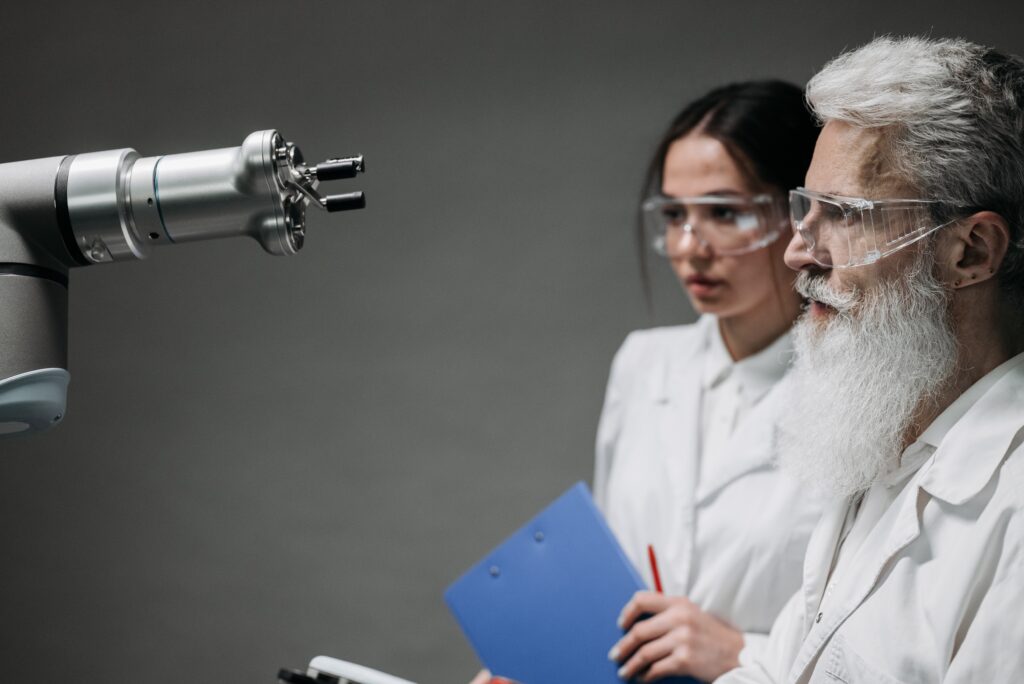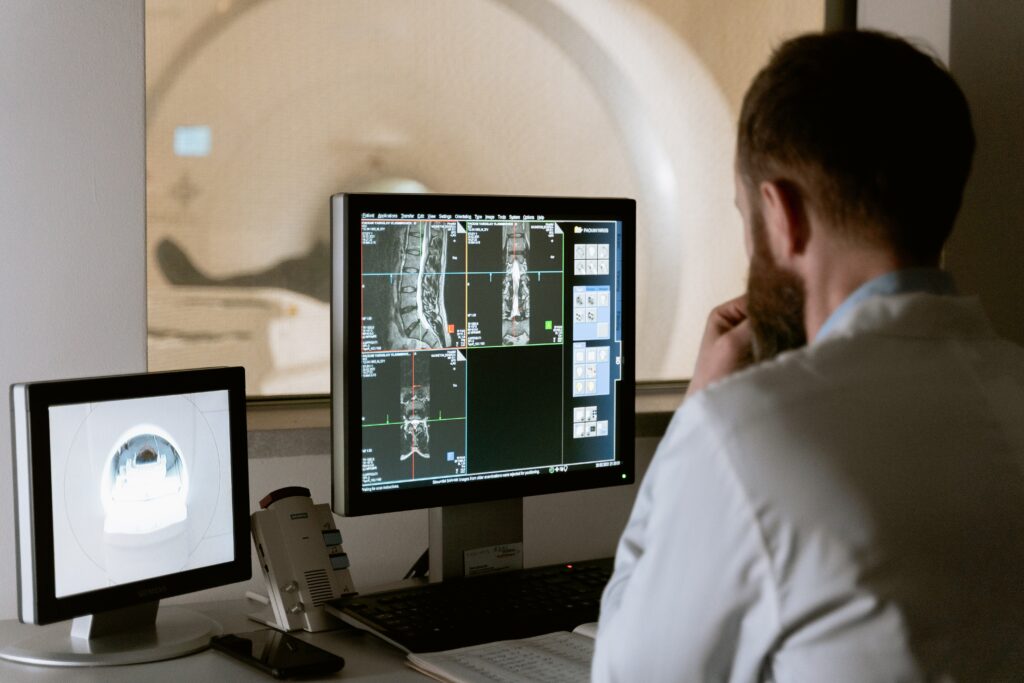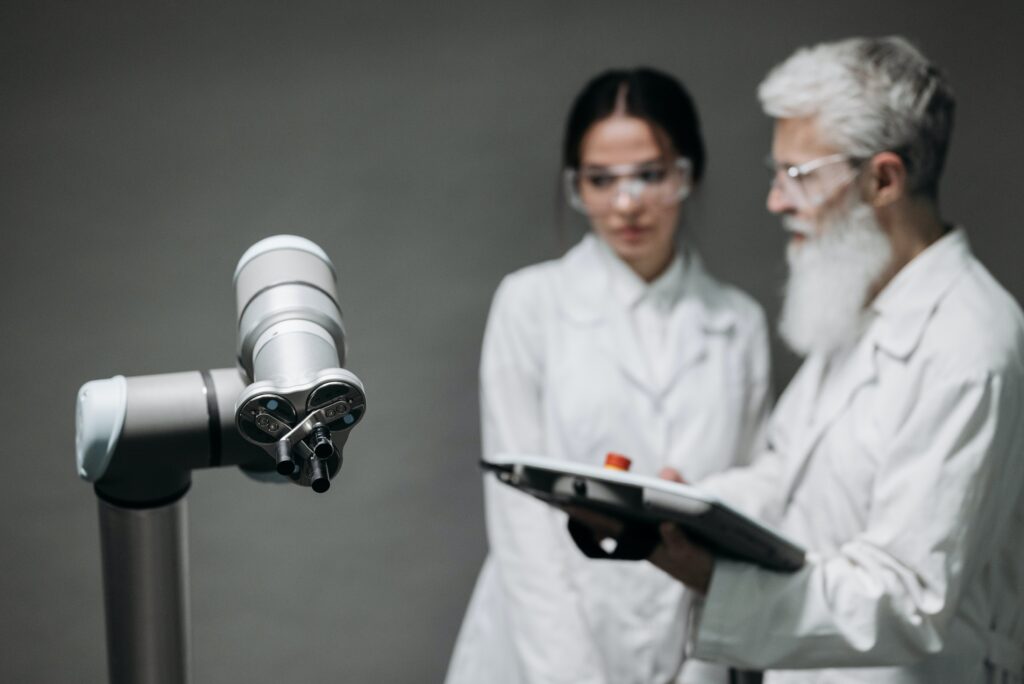
In recent years, artificial intelligence (AI) has revolutionized the healthcare industry, particularly in the domain of medical diagnosis. AI-powered systems have emerged as invaluable tools, assisting healthcare professionals in making more accurate and timely diagnoses. In this comprehensive guide, we will delve into the intricacies of AI medical diagnosis, unraveling how it works, its diverse applications, and the profound impact it has on modern healthcare.
Understanding AI Medical Diagnosis

AI Medical Diagnosis entails the utilization of artificial intelligence algorithms and machine learning techniques to scrutinize medical data, patient symptoms, and historical health records for precise disease identification. This transformative technology not only augments the decision-making process for healthcare providers but also enhances its efficiency and reliability.
The Pivotal Role of Artificial Intelligence
Artificial intelligence serves as the linchpin in medical diagnosis, empowered by its capacity to process extensive datasets, identify intricate patterns, and predict outcomes. Let’s break down the intricate process:
AI Algorithms in Medical Diagnosis

AI algorithms employed in medical diagnosis adhere to a systematic approach:
1. Data Collection
AI systems meticulously gather comprehensive patient data from diverse sources, encompassing electronic health records, diagnostic test results, and patient interviews. The richness of data is pivotal for ensuring the accuracy of the diagnosis.
2. Data Preprocessing
Before data analysis commences, a crucial step involves data preprocessing. This entails thorough data cleaning and organization to eliminate errors and discrepancies, ensuring data accuracy.
3. Feature Extraction
AI algorithms extract pertinent features from the data. These features encompass patient demographics, medical history, symptoms, and diagnostic test results.
4. Machine Learning
Machine learning models are then meticulously trained using the preprocessed data. These models acquire knowledge from historical data to identify patterns and correlations among symptoms, diseases, and patient profiles.
5. Pattern Recognition
Trained AI models excel at pattern recognition, demonstrating an exceptional ability to discern subtle relationships between symptoms and diseases. These nuanced insights often elude human physicians.
6. Diagnosis and Prediction
Once duly trained, AI systems proceed to diagnose diseases based on the input data. Moreover, they can predict disease progression and patient outcomes, facilitating more informed treatment decisions.
Applications of AI Medical Diagnosis

AI medical diagnosis manifests its prowess across an array of healthcare domains:
1. Disease Identification
AI exhibits exceptional accuracy in identifying diseases from various medical imaging modalities such as X-rays, CT scans, and MRIs. This expedites the diagnostic process and empowers radiologists to make quicker and more precise diagnoses.
2. Predictive Analytics
AI models meticulously analyze patient data to predict disease risk factors and potential health issues. This proactive approach allows for early interventions and the formulation of personalized treatment plans.
3. Virtual Health Assistants
AI-driven virtual health assistants, often referred to as AI doctor apps, are at the vanguard of providing instant medical advice and symptom analysis to users. These apps are accessible to anyone with a smartphone, bolstering healthcare accessibility and convenience.
4. Drug Discovery
AI significantly accelerates the drug discovery process. By scrutinizing vast datasets, AI identifies potential drug candidates and predicts their efficacy. This expedites the development of novel treatments and therapies.
5. Personalized Medicine
AI empowers healthcare providers to tailor treatment plans to individual patient profiles. This ensures that treatments are not only effective but also attuned to the unique characteristics of each patient.
Read Also: What is Artificial Intelligence? Everything you need to know
Ethical Considerations

While AI medical diagnosis holds immense promise, it concurrently raises critical ethical considerations. Addressing these issues is essential to the responsible deployment of this transformative technology:
1. Data Privacy
The protection of patient data remains paramount. AI systems must meticulously adhere to stringent data privacy regulations to safeguard patient confidentiality.
2. Bias in AI Algorithms
AI algorithms have the potential to inherit biases present in historical healthcare data. Mitigating bias in AI is essential to ensure equitable healthcare delivery and diagnosis.
3. Explainability
The decision-making process of AI can be complex and challenging to interpret. Ensuring transparency and explainability in AI models is pivotal for building trust among healthcare providers and patients.
The Future of AI Medical Diagnosis

As technological advancements continue to unfold, the future of AI medical diagnosis holds tremendous promise:
1. Enhanced Accuracy
AI algorithms will undergo continuous refinement and improvement, leading to even greater diagnostic accuracy. These improvements will be facilitated by training on larger and more diverse datasets.
2. Telemedicine Integration
AI-driven health detection apps are set to become integral components of telemedicine. This integration will further enhance healthcare accessibility and efficiency.
3. Advancements in Drug Discovery
AI will continue to expedite drug discovery, resulting in the development of more effective and innovative treatments and therapies.
4. Global Accessibility
AI medical diagnosis will transcend geographical boundaries, reaching underserved populations around the globe. This transformation promises to bridge healthcare disparities

Artificial intelligence has ushered in a new era in healthcare, redefining the landscape of medical diagnoses and treatments. With its capacity to process extensive data, identify intricate patterns, and predict outcomes, AI is poised to make healthcare more precise, efficient, and accessible.
Embracing the potential of AI medical diagnosis necessitates the vigilant addressing of ethical concerns, ensuring transparency, and prioritizing patient privacy. Through responsible development and implementation, AI will remain a potent tool, ultimately benefiting patients and elevating healthcare standards on a global scale.
By harnessing the potential of AI medical diagnosis, we can anticipate a future where diseases are detected earlier, treatments are personalized, and healthcare is universally accessible to all, irrespective of geographical or economic constraints.






